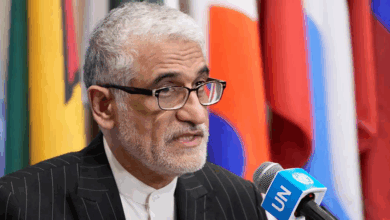
Israel and Iran initiated new assaults on one another overnight into Sunday, as U.S. President Donald Trump stated that the dispute could be swiftly resolved while cautioning Tehran against targeting any U.S. assets.
Israeli rescue teams searched through the debris of residential structures devastated by attacks, utilizing flashlights and sniffer dogs to find survivors after authorities reported that at least 10 individuals, including children, had died.
The Israeli military advised Iranians residing close to arms sites to leave, while Prime Minister Benjamin Netanyahu stated that the assaults by Israel thus far were minor compared to what Iran would experience in the upcoming days. Trump provided no specifics about any potential agreement.
Iranian Foreign Minister Abbas Araqchi stated that Israel’s assaults, which commenced on Friday, were designed to disrupt nuclear negotiations with the U.S. scheduled to resume in Oman on Sunday, and these have now been called off. He stated that the U.S. backed Israel’s assaults and that Iran was merely responding in self-defence.
Araqchi has earlier mentioned that the talks in Oman could not occur while Iran faces Israel’s “brutal” assaults.
Israel stated that the campaign aims to prevent Iran from creating nuclear weapons and neutralizing its missile capabilities. Officials have recognized that the military attacks were improbable to completely stop Iran’s nuclear initiative and expressed hopes that they would result in a thorough U.S.-Iran agreement.
Iran reported that 78 individuals lost their lives on the initial day of Israel’s operation, with many more casualties the following day, including 60 people when a missile struck a 14-story residential building in Tehran, where 29 of the deceased were children. Iran reported that the Shahran oil depot in Tehran was hit in an Israeli strike, but noted that the situation is managed.
In Israel, the recent series of Iranian assaults commenced just after 11 p.m. on Saturday (2000 GMT), as air raid sirens sounded in Jerusalem and Haifa, prompting approximately one million individuals to seek refuge in bomb shelters.
At approximately 2:30 a.m. local time (2330 GMT Saturday), the Israeli military issued a warning about another missile attack and advised residents to find shelter. Detonations resonated in Tel Aviv and Jerusalem as missiles soared through the air while interceptor rockets were fired in retaliation. The military rescinded its shelter-in-place advisory almost an hour after broadcasting the alert.
On Sunday, Yemen’s Houthis, aligned with Iran, announced they struck Jaffa in central Israel with multiple ballistic missiles over the past 24 hours, marking the first occasion an Iranian ally has engaged in the conflict.
Tehran has cautioned Israel’s partners that their military installations in the area would be targeted as well if they assisted in intercepting Iranian missiles. After 20 months of conflict, Iran’s key proxies, Hamas and Hezbollah, are weakened, limiting retaliation options. Israeli missile strikes killed at least 10, injuring over 140. Strikes also affected Iran’s South Pars gas field. Regional oil prices rose, and fears of a wider conflict increase, as Israel targets Iran’s nuclear ambitions.






